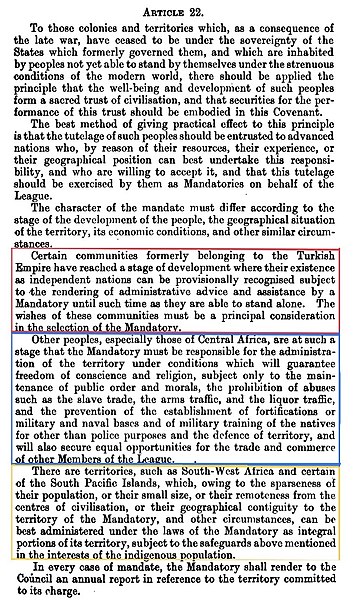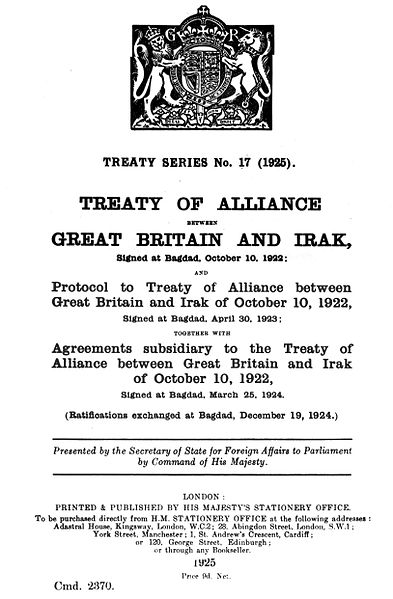Tanganyika was a colonial territory in East Africa which was administered by the United Kingdom in various guises from 1916 until 1961. It was initially administered under a military occupation regime. From 20 July 1922, it was formalised into a League of Nations mandate under British rule. From 1946, it was administered by the UK as a United Nations trust territory.
Tanganyika stamp, 1925, with giraffe
League of Nations mandate
A League of Nations mandate represented a legal status under international law for specific territories following World War I, involving the transfer of control from one nation to another. These mandates served as legal documents establishing the internationally agreed terms for administering the territory on behalf of the League of Nations. Combining elements of both a treaty and a constitution, these mandates contained minority rights clauses that provided for the rights of petition and adjudication by the Permanent Court of International Justice.
Article 22 of the Covenant of the League of Nations, highlighting the three mandate classes: Red: Class A (ex Ottoman) Blue: Class B (ex German Central Africa) Yellow: Class C (ex German South West Africa and Pacific)
Image: Anglo Iraq Treaty 1922
Image: Mandate for Syria and the Lebanon
Image: Belgian Mandate for East Africa





